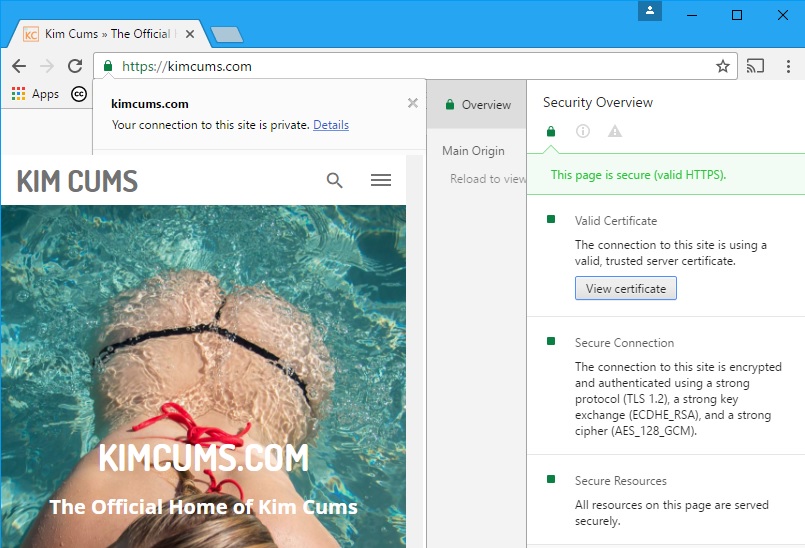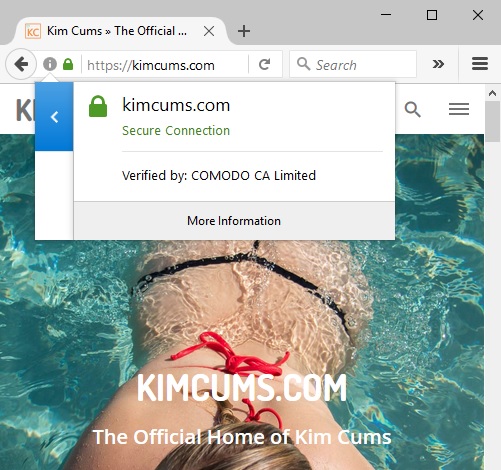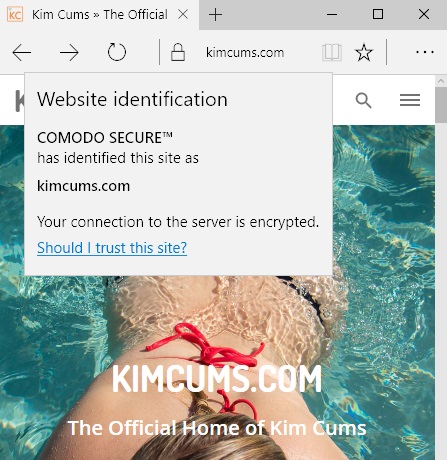Website Security (SSL/HTTPS)
TL;DR This site is secured by Comodo SSL
 All data and information is encrypted with an SSL certificate.
All data and information is encrypted with an SSL certificate.
How different browser security icons look
What is SSL?
SSL is the standard security technology for establishing an encrypted link between a web server and a browser. This link ensures that all data passed between the web server and browser remain private.
SSL Encrypts Sensitive Information
The primary reason why SSL is used is to keep sensitive information sent across the Internet encrypted so that only the intended recipient can understand it. This is important because the information you send on the Internet is passed from computer to computer to get to the destination server. Any computer in between you and the server can see your credit card numbers, usernames and passwords, and other sensitive information if it is not encrypted with an SSL certificate. When an SSL certificate is used, the information becomes unreadable to everyone except for the server you are sending the information to. This protects it from hackers and identity thieves.
SSL Provides Authentication/Identity Verification
In addition to encryption, a proper SSL certificate also provides authentication. This means you can be sure that you are sending information to the right server and not to an imposter trying to steal your information.
A certificate guarantees the information a browser is receiving originates at the expected domain. It’s a guarantee that when a user sends sensitive data, it’s being sent to the right place, and not to a malicious third-party.
SSL Provides Trust
Web browsers give visual cues, such as a lock icon or a green bar, to make sure visitors know when their connection is secured.
With an SSL certificate and the HTTPS protocol that comes with it, customers will know they’re dealing with a website that invests in security.
Guards Against Phishing
Phishing emails often contain links that lead unsuspecting customers to a convincing replica of an otherwise reputable site.
Payment Card Industry(PCI) Compliance
To offer credit card purchases a site must have SSL certificates with encryption of at least 128 bits to comply with the rules laid out by the Payment Card Industry, an independent organisation working to protect consumers around the world.
SEO/Google prefers HTTPS/SSL websites
“We’re starting to use HTTPS as a ranking signal, we’d like to encourage all website owners to switch from HTTP to HTTPS to keep everyone safe on the web.” Source
How different browser security icons look:
Chrome SSL Security:

Firefox SSL Security:

Edge SSL Security:
